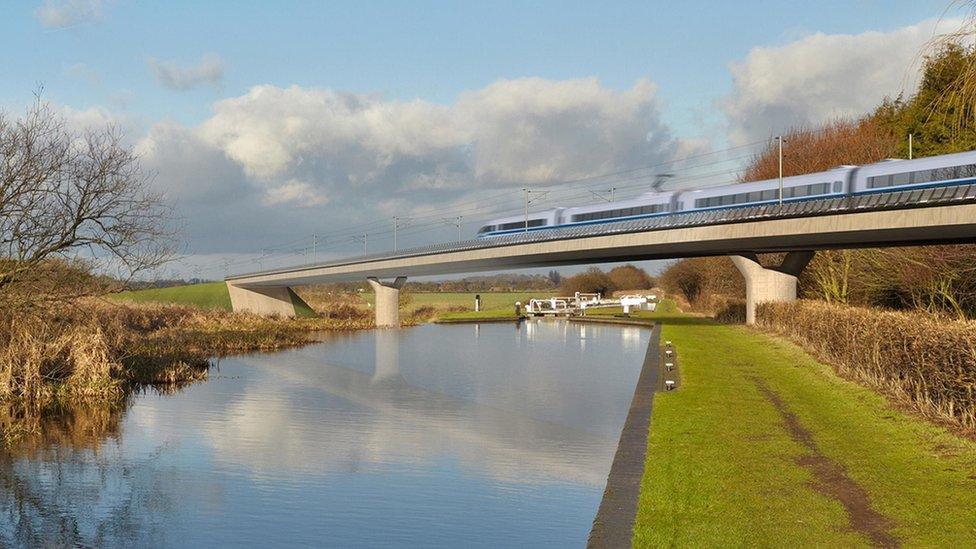HS2 boss: Business case for Northern extension is 'clear'
- Published

The boss of HS2 has urged policymakers "not to lose sight" of the benefits the project will bring to the UK economy.
Speaking to the Wake up to Money podcast, Mark Thurston said the business case for the high-speed rail network was "clear".
He added that "the real prize for the country is to complete the second phase", linking Birmingham with Manchester and Leeds.
Last week, a House of Lords committee called for a rethink of HS2, arguing that it did not offer value for money.
It also said the project, which has a budget of 拢56bn, risked "short-changing" the north of England - a verdict that the government said it "fundamentally disagreed" with.
Organisers say HS2 will deliver a 拢92bn boost to the UK economy, and that for every 拢1 spent, the country will receive 拢2.30 in benefits.
In an interview with 5 live's Wake Up to Money programme, Mark Thurston stood by such assessments.
"Connecting the three major cities of the Midlands and the North, a metropolitan area of about 10 million people, and being able to get between those cities in about 45-50 minutes will transform the economy," he said.
Mr Thurston admitted HS2 had "difficult choices" to make to ensure it stayed within budget
The former engineer cited Japan and China as examples of countries where an investment in high-speed trains had boosted economic growth.
"The key for us now is not to lose sight of the benefits of this programme," Mr Thurston said of HS2.
On Tuesday, it emerged that thousands of trees planted along the HS2 route would have to be replaced, after saplings were not watered in last summer's drought.
The project's land and property acquisitions have also faced criticism.
Campaigners claim some homeowners are being treated badly, and that properties are being routinely undervalued by HS2.
HS2 claims it works to achieve a fair price for both homeowners and taxpayers.
Mr Thurston admitted that his organisation had "some difficult choices" to make to ensure it stayed within budget, particularly with regard to conservation.
"A large part of this railway is underground or buried in deep cuttings to make sure that we are sensitive to the environment and local communities, and that is putting huge cost into the programme," he said.
- Published16 May 2019
- Published21 May 2019
- Published18 April 2019